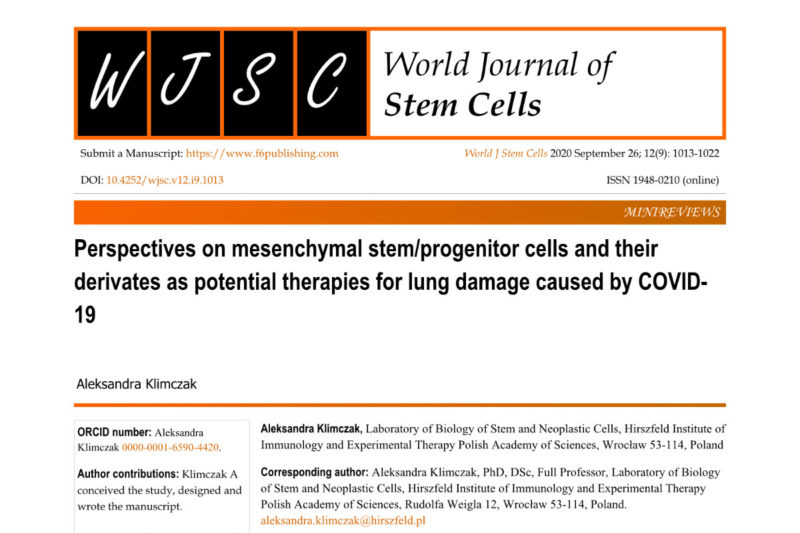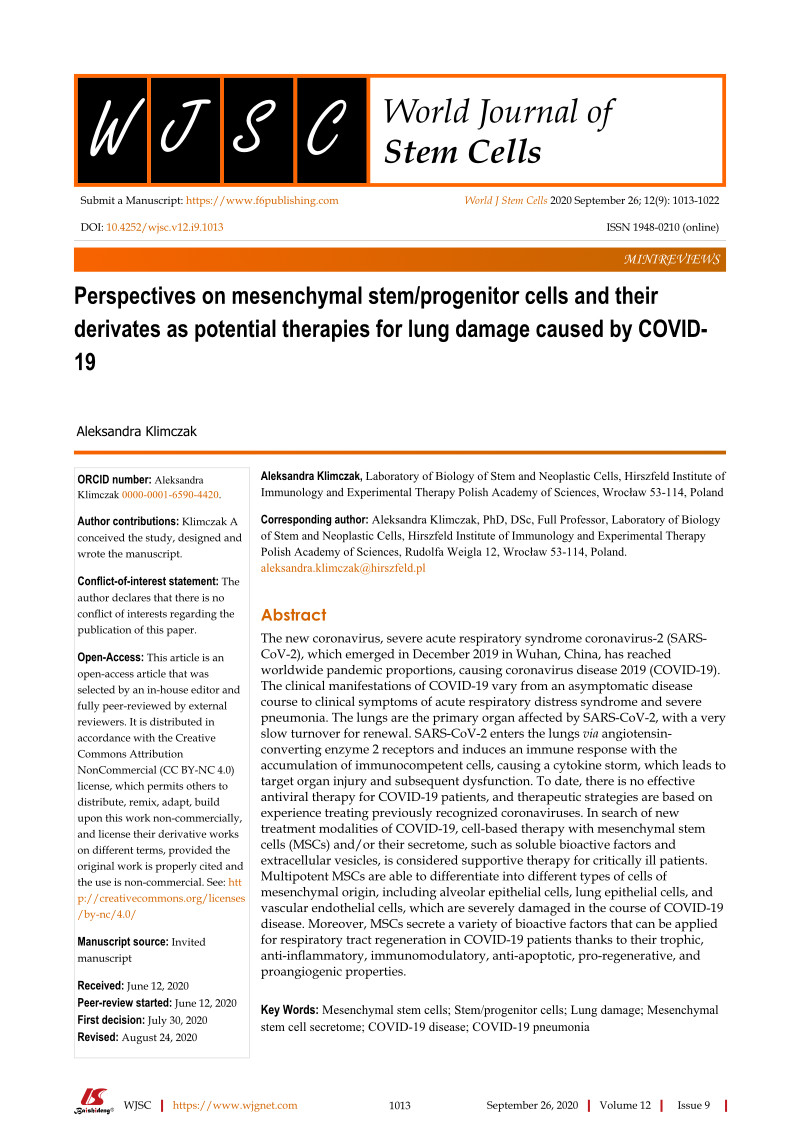The new coronavirus, severe acute respiratory syndrome coronavirus-2 (SARS-CoV-2), which emerged in December 2019 in Wuhan, China, has reached worldwide pandemic proportions, causing coronavirus disease 2019 (COVID-19).
The clinical manifestations of COVID-19 vary from an asymptomatic disease course to clinical symptoms of acute respiratory distress syndrome and severe pneumonia. The lungs are the primary organ affected by SARS-CoV-2, with a very slow turnover for renewal. SARS-CoV-2 enters the lungs via angiotensin-converting enzyme 2 receptors and induces an immune response with the accumulation of immunocompetent cells, causing a cytokine storm, which leads to target organ injury and subsequent dysfunction. To date, there is no effective antiviral therapy for COVID-19 patients, and therapeutic strategies are based on experience treating previously recognized coronaviruses.
In search of new treatment modalities of COVID-19, cell-based therapy with mesenchymal stem cells (MSCs) and/or their secretome, such as soluble bioactive factors and extracellular vesicles, is considered supportive therapy for critically ill patients. Multipotent MSCs are able to differentiate into different types of cells of mesenchymal origin, including alveolar epithelial cells, lung epithelial cells, and vascular endothelial cells, which are severely damaged in the course of COVID-19 disease.
Moreover, MSCs secrete a variety of bioactive factors that can be applied for respiratory tract regeneration in COVID-19 patients thanks to their trophic, anti-inflammatory, immunomodulatory, anti-apoptotic, pro-regenerative, and proangiogenic properties.
More: Klimczak A. Perspectives on mesenchymal stem/progenitor cells and their derivates as potential therapies for lung damage caused by COVID-19. World J Stem Cells 2020; 12(9): 1013-1022 [PMID: 33033561 DOI: 10.4252/wjsc.v12.i9.1013]





